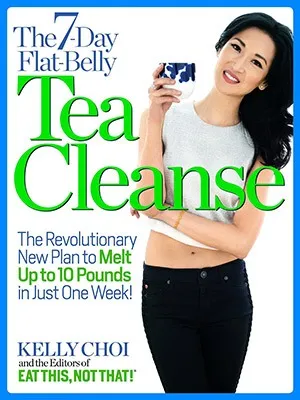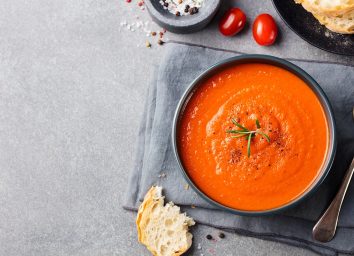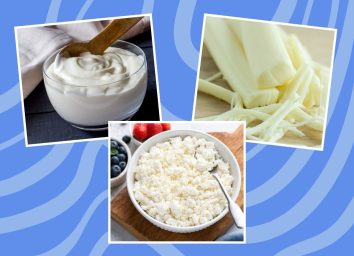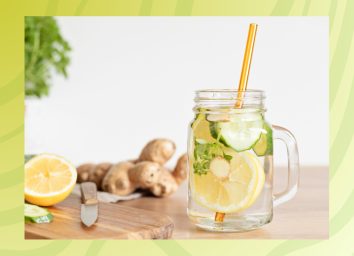6 Foods That Boost Workout Endurance
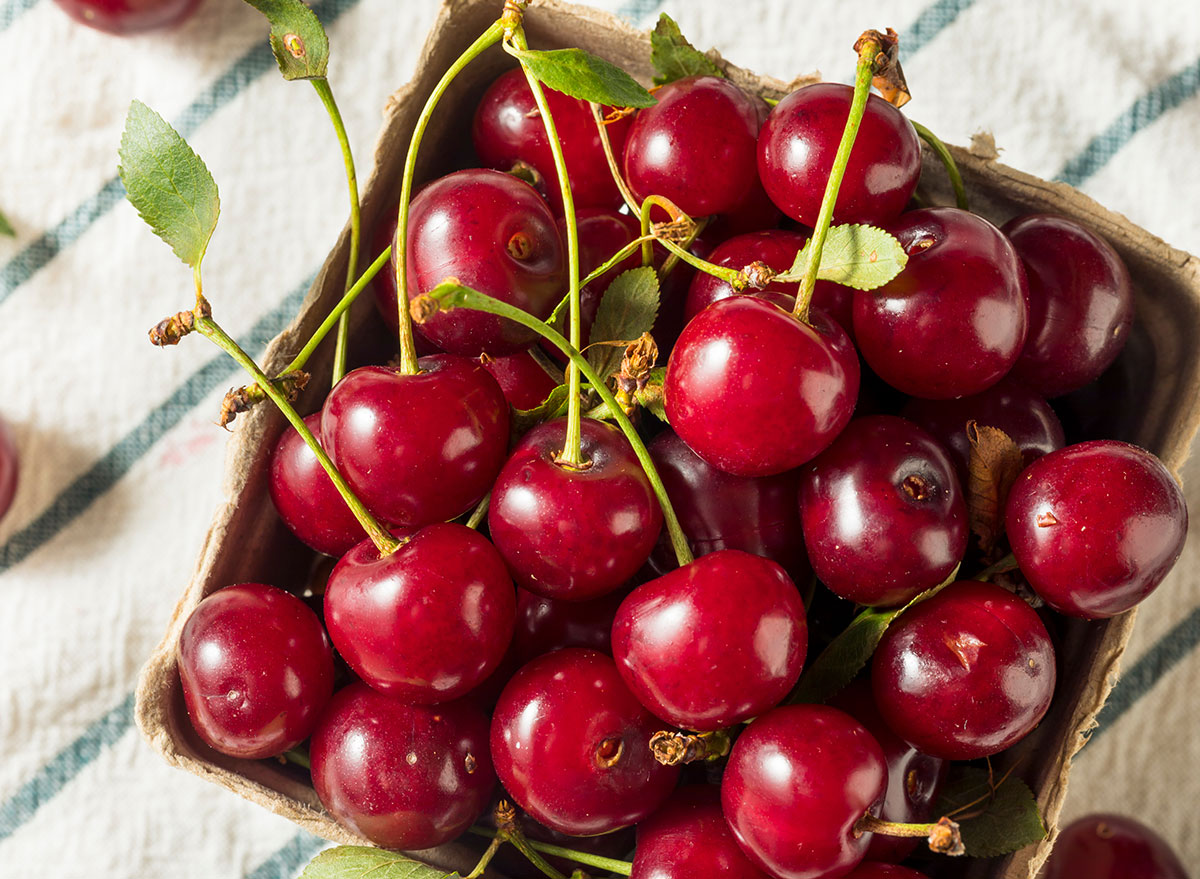
Heard of quercetin? No, quinoa doesn't have a hip, small-batch cousin. Nope, it's not some trendy protein blend gym rats are lining up for. The nutritional compound is obscure and often overlooked, but consider it worth remembering. "Quercetin is a flavonoid that can be found in many fruits and vegetables, green tea, and red wine. It's most regarded for its antioxidant properties, which help your body fight off cancer-causing free radicals," says Julia Falamas, director of programming and operations at Epic Hybrid Training.
Quercetin has also shown a potential role in improving exercise endurance. "It is thought that quercetin can help to create new mitochondria in the body's cells and increase one's oxidative capacity, which signifies the maximum amount of oxygen your muscles can use," says Sarah-Jane Bedwell, RD, LDN, a Nashville-based nutritionist and author of Schedule Me Skinny: Plan to Lose Weight and Keep it Off in Just 30 Minutes a Week.
When it comes to weight loss, quercetin may show encouraging results because it helps stave off cortisol, a hormone that gets released when we feel physical stress, prompting our bodies to retain fat. "In relation to endurance training, quercetin can help prevent the release of cortisone, which also causes muscle breakdown, and can allow you to work out longer without overtraining and fatigue," says Falamas.
Normal quercetin intake ranges from 15 to 40mg per day, says Bob Wright, the Director of Education at Hilton Head Health, a wellness retreat and weight loss spa in South Carolina. To boost your intake, Wright advises looking for foods with red, bluish, and dark green hues. One note of caution: Quercetin is often added to energy drinks, which can be loaded with added chemicals and sugar. "If you want to try to increase this antioxidant in your diet, it's best to take as real food and in conjunction with bromelain, an enzyme found in pineapples," says Marcey Rader, M.Ed, the health and wellness Savve Travel Expert for Extended Stay America Hotels and a certified personal trainer and fitness nutrition specialist.
Here are some of the best food sources of quercetin.
Onions
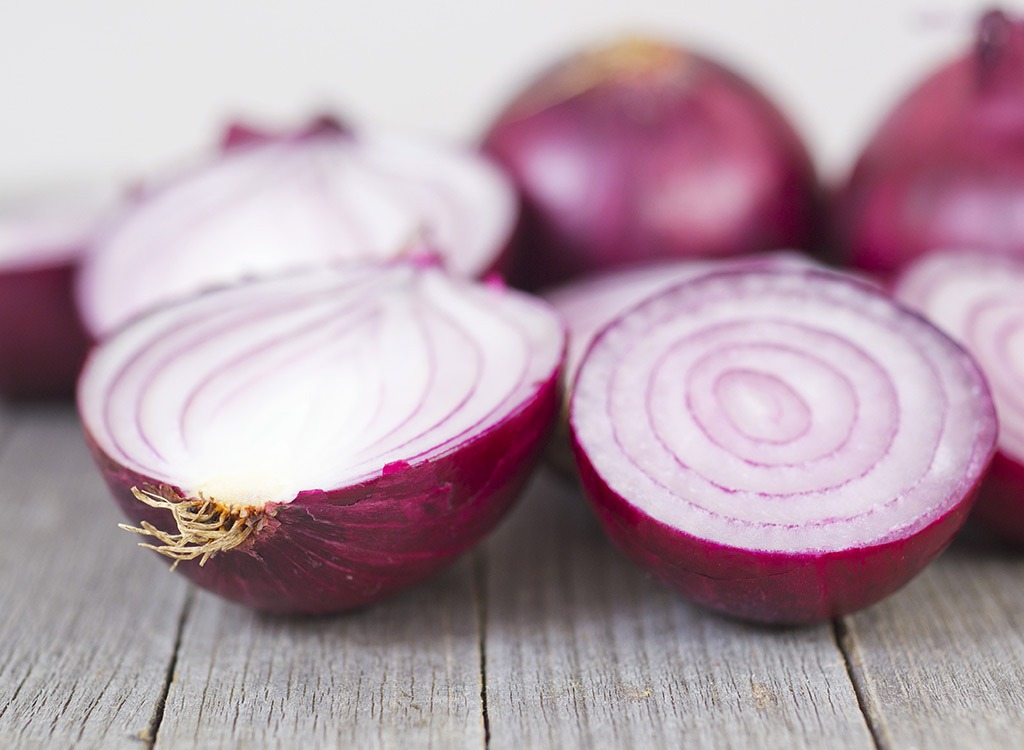
Amount of quercetin: 20 mg per 100 g
Offering more quercetin than any other food source, onions might be a boon for your pre-workout regimen, if you can handle the breath-related blowback. "For athletes and gym-goers, quercetin may and enhance mitochondrial activity, and decrease susceptibility to respiratory infections associated with high-stress exercise," says Rader. Allergy sufferers, listen up: "Quercetin is an anti-inflammatory and antioxidant. For people who have allergic reactions during exercise, it may combat histamine production and release."
Green Tea
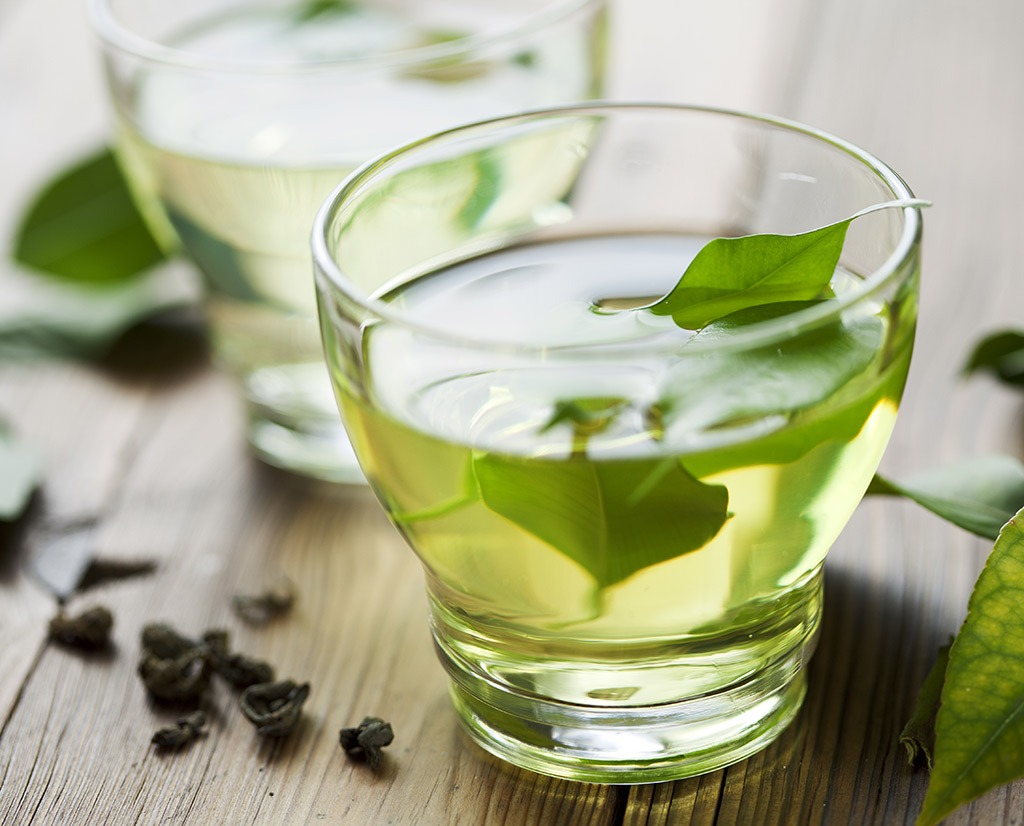
Amount of quercetin: 1.69 mg per 100 g brewed
This powerful quercetin-rich elixir is loaded with antioxidants and is also acclaimed for its catechins, which act as metabolism boosters. "One study found that green tea extract helped men burn 17% more fat during a cardiovascular workout," says Bedwell. And when it comes to athletic training, green tea is an ideal go-to for energy. "I drink a lot of green tea, especially when I'm training for an event," says Falamas. "Too much caffeine can numb your adrenal system, so green tea is a nice, milder caffeine alternative." To enhance the qualities of green tea further, pair it with a squeeze of citrus, which can help amp up its ability to fight belly bulge.
Apples
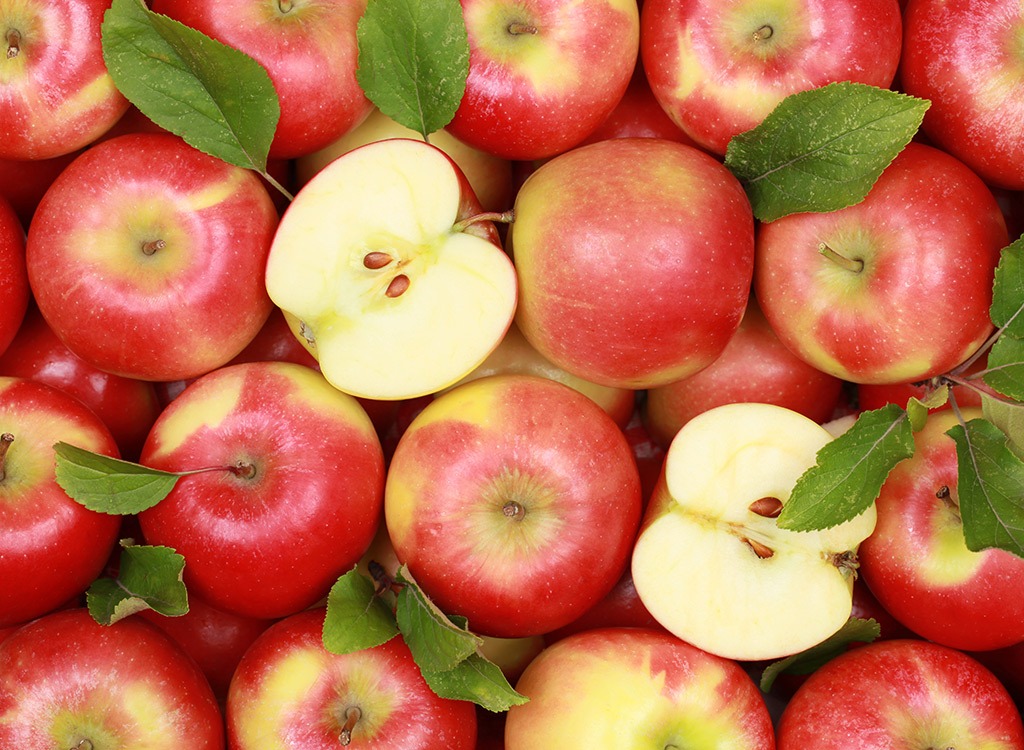
Amount of quercetin: 10 mg per medium-sized unpeeled
Game, set, crunch. "Apples provide good carbs, which are the body's first source of energy in endurance activity," says Bedwell. "And they're a good source of fiber, which makes you feel fuller longer and less likely to overeat." Try munching on an apple pre-lunch—one study found that people who ate apples before their midday meal consumed nearly 200 fewer calories come mealtime. Post-workout, Bedwell enjoys the triple threat of an apple and peanut butter along with a glass of iced green tea. "This combination hydrates me, provides protein for muscle recovery, and good carbs to replace the ones I used during my workout," she says.
Tomatoes

Amount of quercetin: .58 mg per 100 g
In addition to quercetin, tomatoes are also rich in lycopene, an antioxidant present in a variety of reddish fruits and veggies which may fight cancer and heart disease. "Tomatoes are also a great source of many vitamins and minerals, such as vitamin B6, and iron, which helps more oxygen get to your muscles," says Kevin St. Fort, Equinox personal trainer and group fitness instructor.
Try pairing tomatoes with other quercetin-rich foods like onions. Smiley loves combining tomatoes, white onions, jalapeño, and cilantro, as either a dip or an accompaniment for fish. "By adding jalapeno to the salsa, you add thermogenic [fat-burning] properties in addition to building cellular resilience," she says. For another endurance-building dish, whip up some quinoa tabouli. "Take chopped tomatoes and add minced parsley to quinoa with a swirl of olive oil and stir. Parsley and olive oil also provide quercetin and the quinoa provides satisfying protein," says Lauren Imparato, founder and CEO of I.Am.You studio in New York City.
Berries
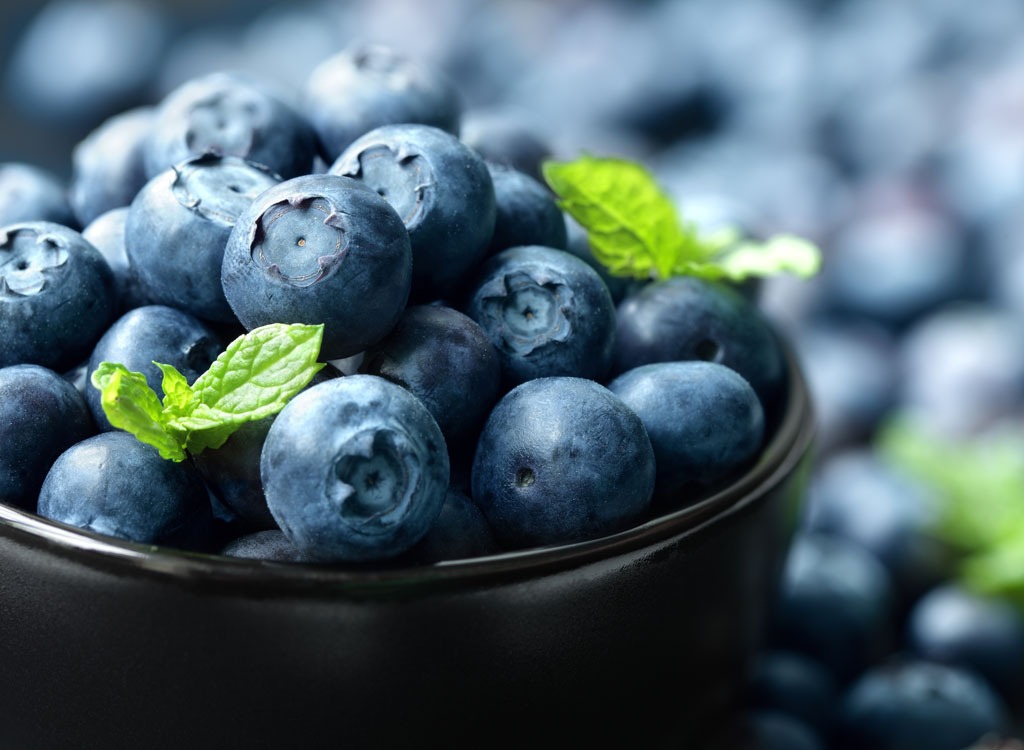
Amount of quercetin: 7.67 mg in 100 g (blueberries); 3.58 mg in 100 g (blackberries)
In addition to being a rich source of vitamins, blueberries could also improve the rate at which muscles recover. "The main training and weight-loss benefit of eating high-quercetin foods is that they act as a powerful anti-inflammatory, which means that muscle recovery will be quicker," says Smiley. "This makes it easier to push harder tomorrow or the next day." Falamas suggests adding a handful of blueberries (and other darker berries such as blackberries and boysenberries) to a protein shake.
Cherries
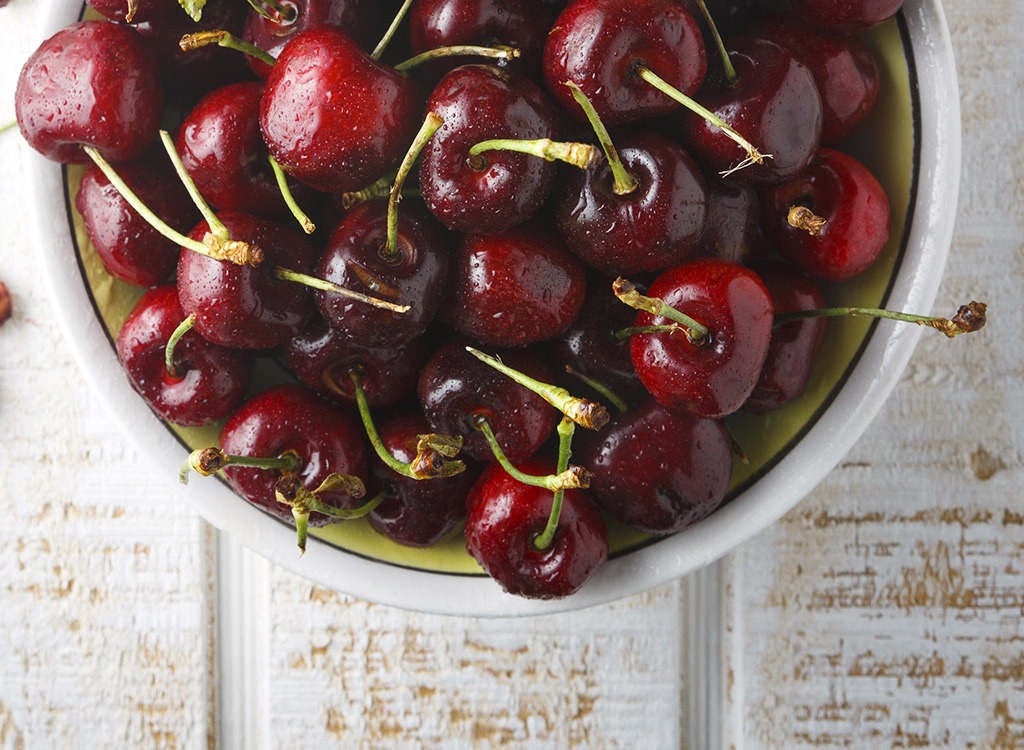
Amount of quercetin: 2.29 mg in 100 g
As if we needed another excuse to munch on delectable sweet cherries—they just happen to be among the most antioxidant-rich fruits on earth. "Cherries provide a range of health benefits, particularly in the realm of athletic performance and recovery," says St. Fort. Because cherries are high in fiber, they can also aid in slim-down efforts by keeping you fuller longer. "A diet bolstered by cherry consumption can leave you with a lower total weight and body fat, as well as less inflammation, due to the reduced amount of strength loss and muscle soreness," he says.
MELT UP TO 10 POUNDS IN ONE WEEK! WITH OUR BEST-SELLING NEW DIET PLAN, The 7-Day Flat-Belly Tea Cleanse! Test panelists lost up to 4 inches from their waist! Available now for Kindle, iBooks, Nook, Google Play, and Kobo.
